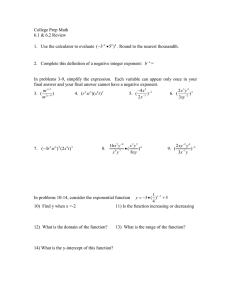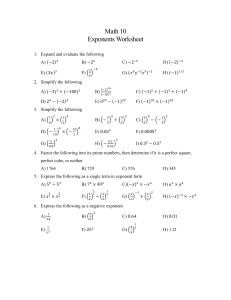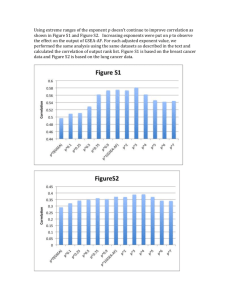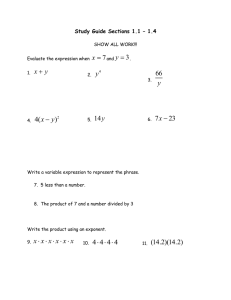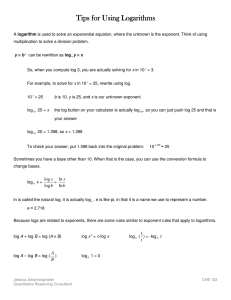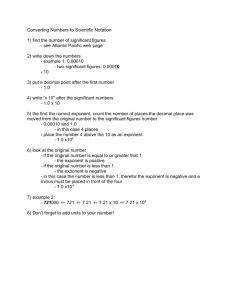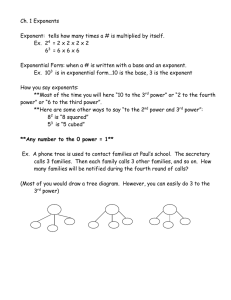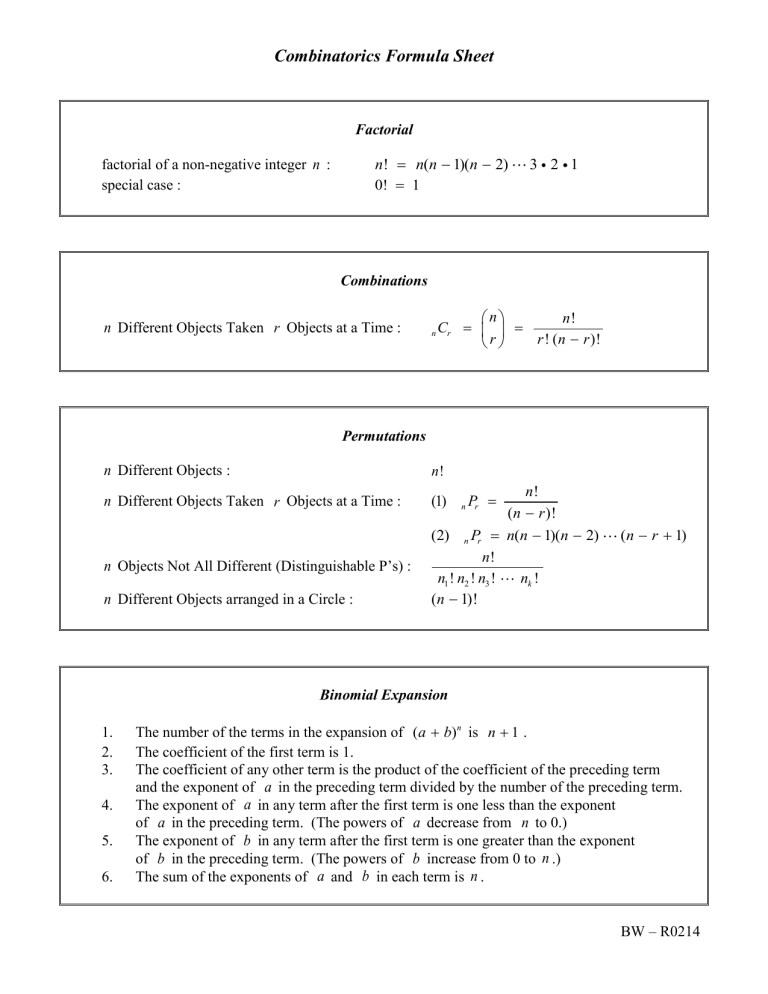
Combinatorics Formula Sheet Factorial n! n(n 1)(n 2) 0! 1 factorial of a non-negative integer n : special case : 3 2 1 Combinations n Different Objects Taken r Objects at a Time : n n n! Cr r ! (n r )! r Permutations n Different Objects : n! n Different Objects Taken r Objects at a Time : n Objects Not All Different (Distinguishable P’s) : n Different Objects arranged in a Circle : n! (n r )! (2) n Pr n(n 1)(n 2) n! n1 ! n2 ! n3 ! nk ! (n 1)! (1) n Pr (n r 1) Binomial Expansion 1. 2. 3. 4. 5. 6. The number of the terms in the expansion of (a b)n is n 1 . The coefficient of the first term is 1. The coefficient of any other term is the product of the coefficient of the preceding term and the exponent of a in the preceding term divided by the number of the preceding term. The exponent of a in any term after the first term is one less than the exponent of a in the preceding term. (The powers of a decrease from n to 0.) The exponent of b in any term after the first term is one greater than the exponent of b in the preceding term. (The powers of b increase from 0 to n .) The sum of the exponents of a and b in each term is n . BW – R0214 Binomial Theorem n n n n (a b)n a n a n 1 b1 a n 2 b2 a n 3 b3 0 1 2 3 n bn n Alternate Form : ( a b) n n r0 n n r r b a r n where r n Cr n! r ! (n r )! k -th term Formula : n n ( k 1) k 1 k-th term of (a b)n is b a k 1 Row Pascal’s Triangle 0 1 1 2 1 1 3 1 4 5 6 7 1 1 1 1 7 2 3 4 5 6 1 3 6 10 15 21 1 4 10 20 35 1 1 5 15 35 1 6 21 The Inclusion-Exclusion Principle For any two sets A and B , n ( A B) n ( A) n ( B) n ( A B) . The Complement Principle If set A is a subset of a universal set U , then n ( A ) n (U ) n ( A C ) . 1 7 1
